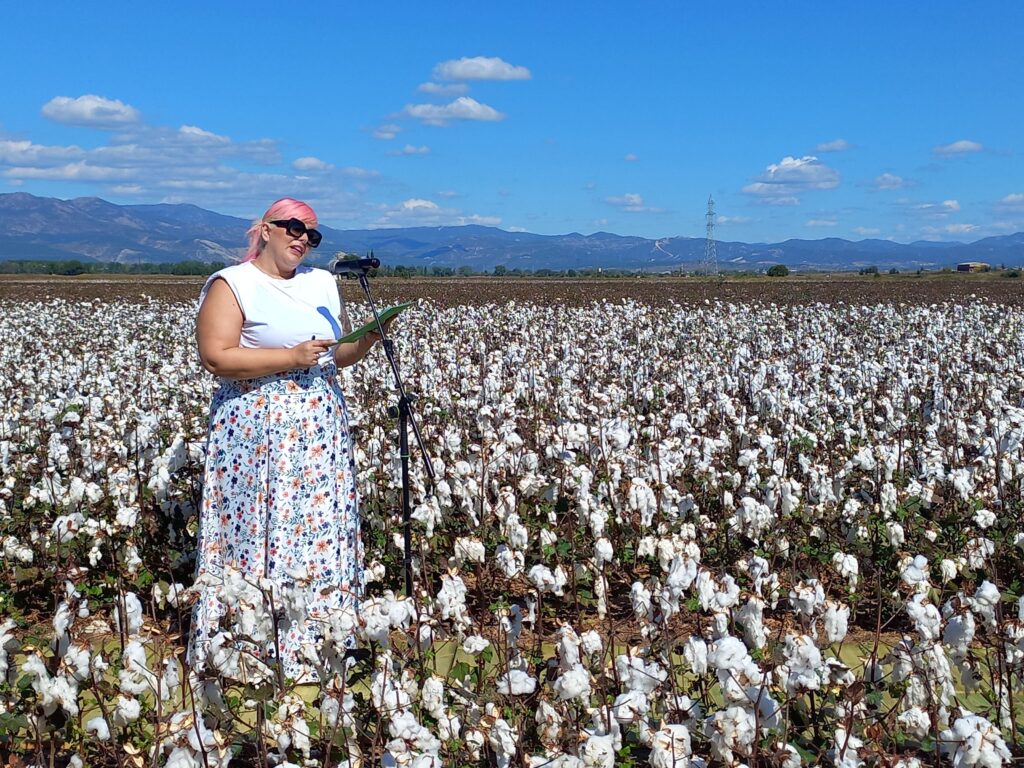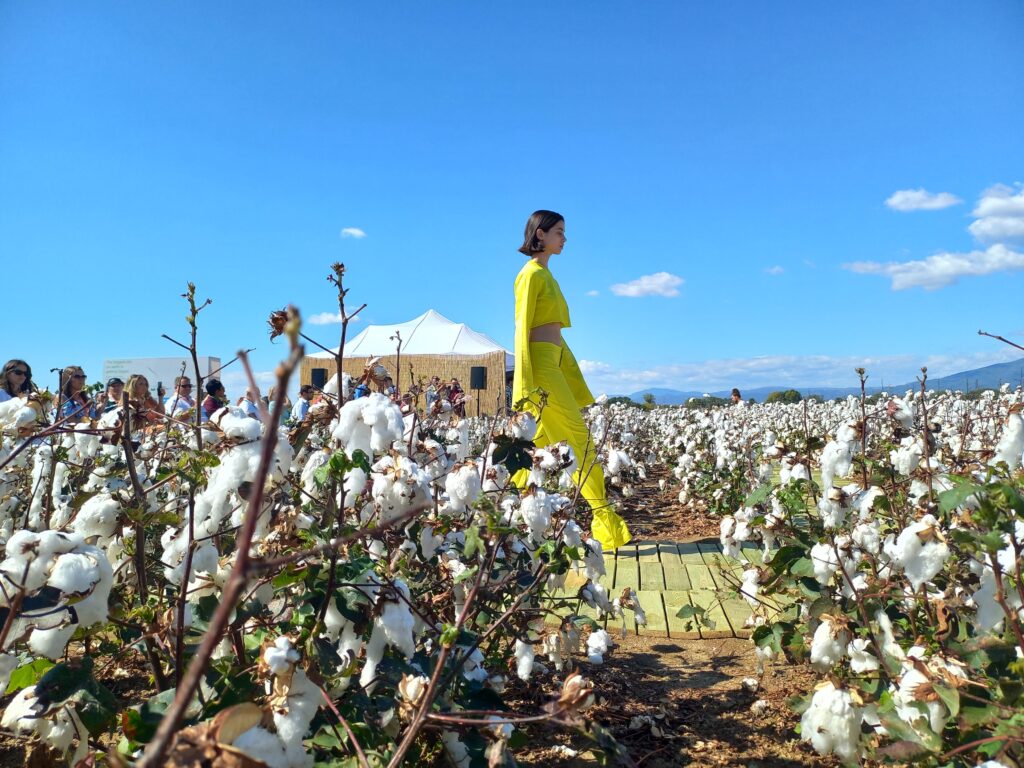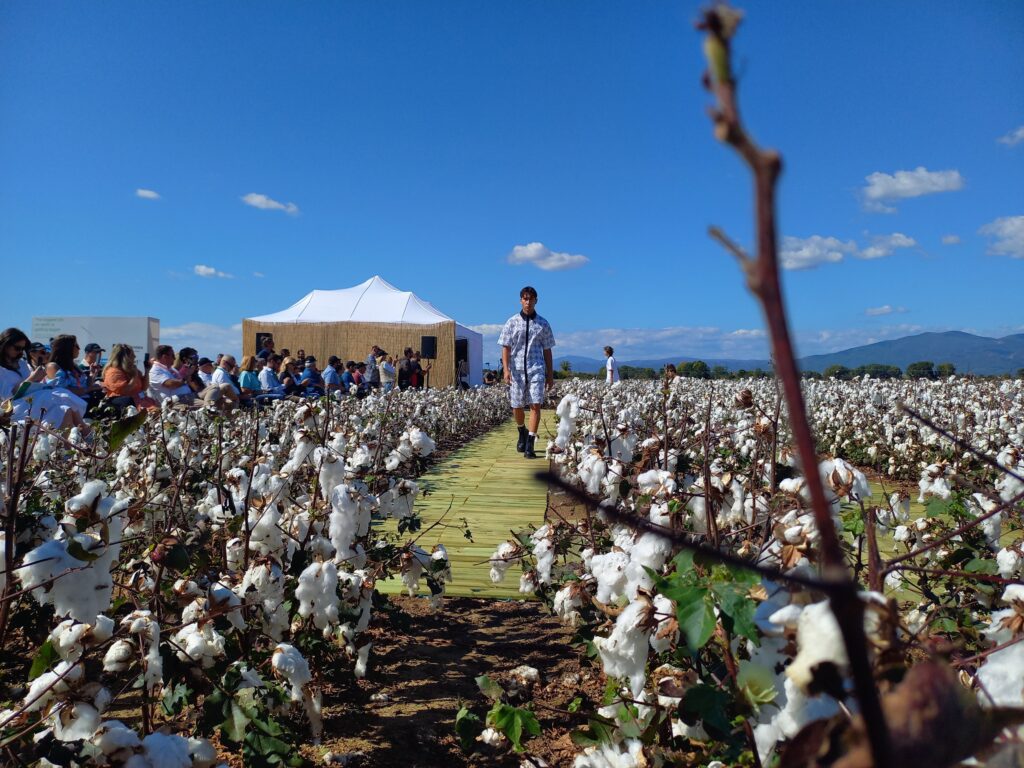The “Seed 2 Sew” project allows the fashion industry to secure the information it needs to trace and guaranteeing cotton’s origin.
Sustainable clothing: The “Seed 2 Sew” pilot program implemented by BASF Agricultural Solutions aimed at producing sustainable clothes was presented in Greece.
The company has created a blockchain platform through which the complete tracing of the path followed by the cotton seed until it is transformed into clothes is achieved. The fashion world can now secure the information it needs about the origin of the cotton it chooses.
In the first phase, five farmers from Komotini, a city in Northern Greece, participate in the program. Farmers plant the seed in their fields, following explicit instructions from the company on how to produce it.
These are international standards which are in line with modern sustainability and pollution reduction requirements.
Farmers photograph all stages of production until the seed becomes cotton and is harvested from the field. The cotton is then transported to the area’s industries, turning it into threads.
During processing, photographs capture the cotton’s journey until it is turned into thread and then into high-quality fabrics.
Sustainable Clothing and Blockchain
This project aims to create a sustainable cotton sourcing system in the fashion industry, which follows the journey of cotton clothing from BASF seed to retail. All partners are located within a radius of 250 kilometres from Thessaloniki, which also allows for the reduction of the carbon footprint when manufacturing cotton clothing.
With Bext 360, the software provider for recording sustainability in supply chains, BASF has developed a blockchain platform using Hyperledger technology to offer greater flexibility in information systems and lower energy use by 99.95% compared to previous blockchain networks.




“We are proud to advance our long-standing commitment to sustainability and digital progress by harnessing the power of blockchain technology,” said Gustavo Palerosi Carneiro, Vice President of Agricultural Solutions EMEA & CIS at BASF Agricultural Solutions. “Offering such digital tools to producers is another important step towards achieving our sustainability commitments.”
BASF Presented the Pilot Program
In a two-day conference held in Thrace, in Northern Greece, BASF presented its pilot program to journalists from various countries around the world who were in the area and saw the whole project up close.
The two-day presentation concluded with a fashion show featuring sustainable clothing produced as part of the pilot project.
Sustainable clothing was created by BASF partner Athos Pallas, which is the link with fashion companies interested in high-quality, sustainable, and traceable cotton.
The fashion show organisers chose to display the clothes inside a cotton field. Show guests could see the cotton seeds being returned to the field as sustainable clothing.



“Since we started sourcing CSF cotton, we have promoted Greek premium cotton, produced with sustainable agricultural practices and traceable. The response has been fantastic, increasing the quality, but also the quantity, of fashion brands that care about sustainability. Certifications are not always reliable in the textile industry and a cotton-sourcing blockchain will take trust to another level,” explains Maria Karamba, Sales Manager at Athos Pallas.
Sustainable clothing produced under this pilot program reaches consumers with a barcode. By scanning it, consumers can follow the cotton’s journey and see photos of all stages of production and processing that confirm the origin and quality of the cotton used.
“After this first milestone, BASF will continue to work on the blockchain, ensuring that data points are covered during the current harvest, as well as continuing to explore the aspects of creating tokens available on each blockchain platform. This is a reward system that could also be used to offset and/or introduce carbon emissions into the value chain,” BASF noted.



